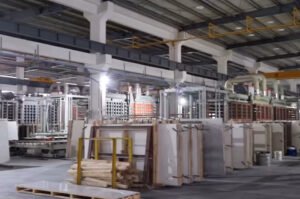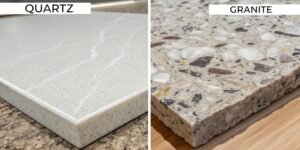Are you worried about the safety of your quartz countertops? It’s a valid concern, but the real risks are in the factory, not your kitchen. Let's clarify the standards.
The safety standards for manufacturing quartz slabs focus on worker protection from silica dust, machinery operation, and chemical handling. Key standards include OSHA guidelines for silica exposure, ISO 45001 for occupational health, and environmental certifications like CE marking for product safety in the market.
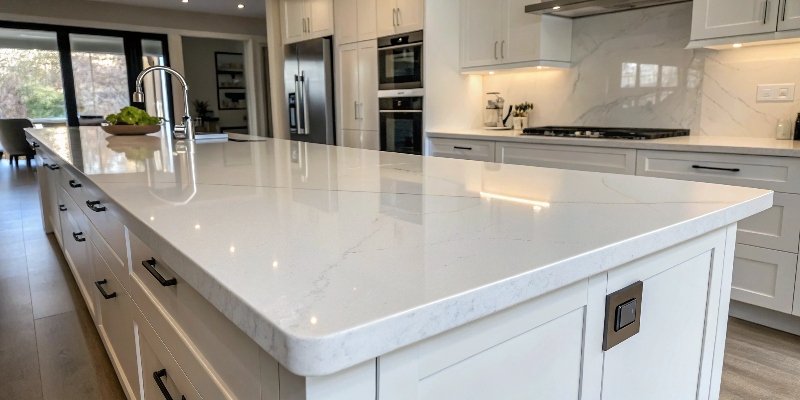
The journey of a quartz slab from our factory to your home is governed by strict safety rules. As someone who has been in this business since 2012, I've seen how crucial these standards are. We take our responsibility seriously, not just for our clients, but for every worker on our production floor. Understanding these measures helps everyone appreciate the quality and safety engineered into the final product. Let me walk you through the precautions we take and what you need to know as a homeowner.
What precautions should be taken when using quartz countertops?
You love your new quartz countertop's sleek look. But daily life can be tough on surfaces, and you want to avoid that first scratch or stain. Following a few simple rules is key.
To protect your quartz countertop, always use cutting boards for chopping, place hot pots and pans on trivets, and clean up spills immediately. Avoid using harsh chemical cleaners, as they can damage the surface finish over time.
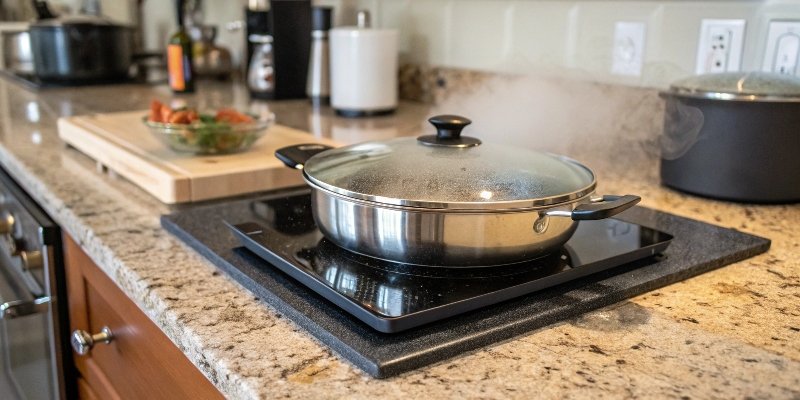
I always tell my clients that while quartz is incredibly durable, it's not indestructible. Think of it like a new car; you wouldn't drive it recklessly. A little care goes a long way in keeping your countertop looking brand new for years. These precautions are simple habits to form, and they protect your investment by preventing accidental damage from heat, sharp objects, or corrosive substances. Over my years in the industry, the happiest customers are always the ones who know how to care for their surfaces properly.
Key Precautions for Longevity
To help you maintain the beauty of your quartz countertops, I've broken down the most important precautions into a simple table. These are based on years of experience and feedback from clients like Rajiv, a procurement manager who values durability and long-term performance in his projects.
| Precaution Category | Action Required | Why It's Important |
|---|---|---|
| Heat Protection | Always use trivets or hot pads under hot cookware. | Sudden high temperatures can cause thermal shock, which may lead to discoloration or cracking in the slab. |
| Scratch Prevention | Use cutting boards instead of cutting directly on the surface. | While quartz is highly scratch-resistant, it is not scratch-proof. Knives and other sharp objects can still score the surface. |
| Chemical Safety | Clean with mild soap and water. Avoid harsh chemicals. | Cleaners with bleach, ammonia, or high pH levels can dull the polished finish and weaken the resin binders over time. |
| Stain Prevention | Wipe up spills from coffee, wine, oil, or juice promptly. | Quartz is non-porous, but prolonged exposure to staining agents can sometimes leave a mark, especially on lighter colors. |
What are the support guidelines for quartz countertops?
You’re planning your new kitchen, but have you considered what's underneath the countertop? Improper support can lead to cracks and costly repairs. Getting this right from the start is critical.
Quartz countertops require full perimeter support on level cabinets. Overhangs greater than 12 inches for 3cm slabs need extra support, like brackets. Areas with cutouts for sinks or cooktops must also have reinforced support to prevent stress fractures.
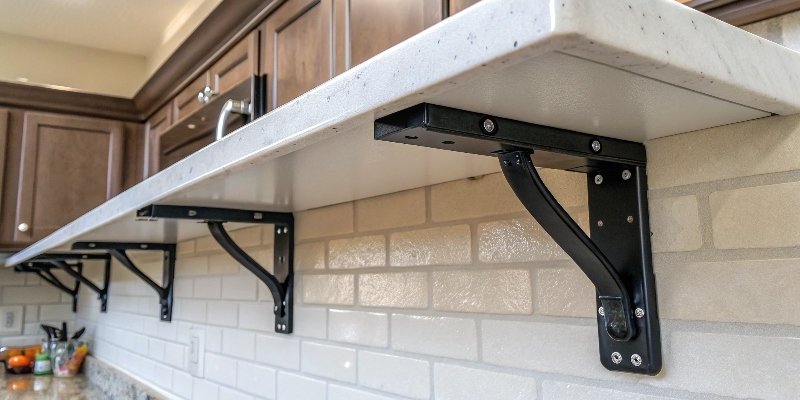
From my experience, installation is just as important as the quality of the slab itself. I've seen beautiful, high-quality quartz fail because the support structure was inadequate. We provide detailed guidelines to all our partners to ensure this doesn't happen. A properly supported countertop will last a lifetime, handling the daily demands of a busy kitchen without any issues. It’s the foundation of a good installation, and it’s something a professional installer never overlooks.
Ensuring Structural Integrity for Your Countertops
A successful installation depends on a solid foundation. For procurement managers like Rajiv, ensuring installers follow these rules is key to avoiding costly callbacks and project delays. He knows that the long-term performance of the material relies heavily on getting the setup right. Here are the essential support guidelines we follow.
| Support Area | Requirement | Reason |
|---|---|---|
| Cabinet Base | Cabinets must be perfectly level and secured. | An uneven base creates stress points in the slab, which can lead to cracks over time as the house settles. |
| Perimeter Support | The entire perimeter of the quartz slab must rest on the cabinet frame. | This distributes the weight of the slab evenly and prevents sagging or stress at unsupported edges. |
| Overhangs | Support needed for overhangs >12" (for 3cm stone) or >8" (for 2cm stone). | Unsupported overhangs are vulnerable to cracking or breaking under weight. Use steel brackets or corbels. |
| Cutouts & Seams | Reinforce the cabinet structure around sinks and cooktops. Place seams away from stress points. | Cutouts are weak points. I've seen installations fail simply because the support around the sink was neglected. A hairline crack appeared after just a few months. |
What is the code for quartz countertops?
Trying to import quartz slabs but getting lost in customs paperwork? The wrong code can cause serious delays and fines at the border, disrupting your entire project.
The Harmonized System (HS) code for exporting quartz slabs from China is typically 6810191000. This code classifies the product for customs worldwide, ensuring it's identified correctly for tariffs and smooth clearance during international trade.
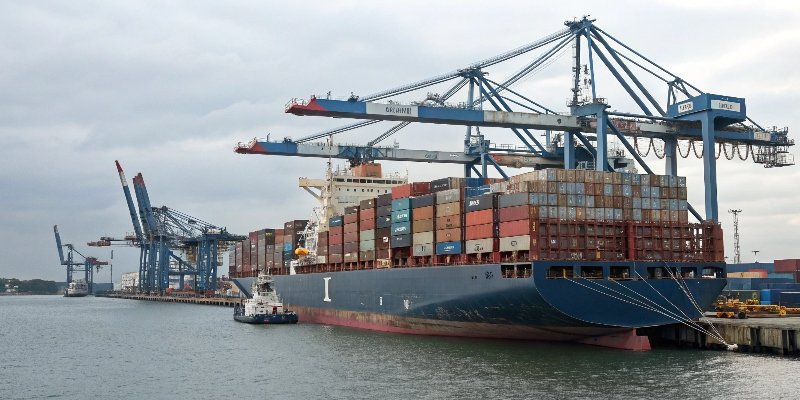
As someone who has exported building materials since 2012, I know that navigating customs is one of the biggest challenges for my clients. A procurement manager like Rajiv in Mexico needs his shipments to arrive on time and on budget. A mistake as small as the wrong number on a form can bring everything to a halt. The HS code is the most important number in this process. It tells customs officials everywhere exactly what is in the container, making sure the correct duties and taxes are applied without any guesswork.
Decoding the Customs Classification
Getting the HS code right is not just about paperwork; it's about building trust and ensuring a predictable supply chain. I remember a new client whose previous supplier used a generic stone code, causing his container to be flagged for inspection. The delay cost him weeks. Since then, I’ve made it my policy to be extremely precise with all documentation. The HS code for quartz is very specific, and using it correctly is key to a hassle-free import process.
| Document Element | Detail | Its Role in Customs Clearance |
|---|---|---|
| HS Code | 6810191000 | This classifies the product under "Articles of cement, of concrete or of artificial stone," specifically for items like tiles and slabs. |
| Product Description | Artificial Quartz Stone Slabs | The description on the invoice must match the HS code. Vague language is a common reason for inspections. |
| Country of Origin | China | This detail, combined with the HS code, determines the specific tariffs and duties that will be applied by the importing country. |
| Commercial Invoice | Declared value and quantity | Customs uses this information to calculate the final taxes based on the classification provided by the HS code. |
Is quartz a safe product?
You might hear stories about silica dust in manufacturing. This naturally makes you wonder if the finished product you bring into your home is safe. Let me put your mind at ease by explaining the difference.
Yes, a finished quartz countertop is completely safe for home use. It is a stable, non-porous material that does not release dust. The health risks associated with silica dust are strictly limited to the manufacturing and fabrication process, not the final installed product.
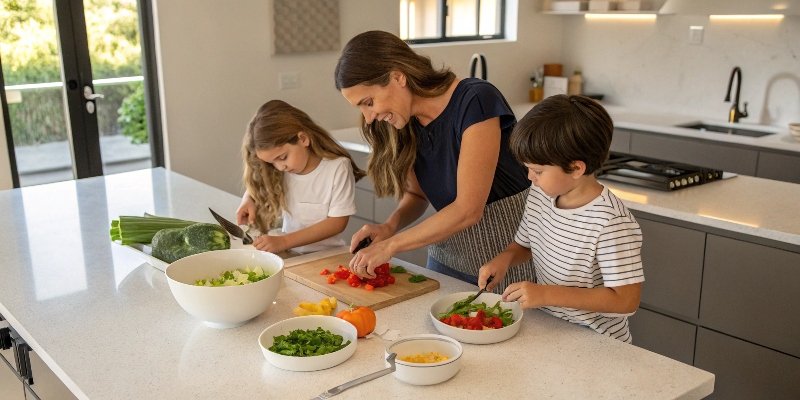
I want to be very clear about this: the safety of our workers during manufacturing is our highest priority, and the safety of your family in your home is the ultimate goal. The two are linked, but the risks are very different. We manage the hazards in our factory so that you receive a product that is entirely safe, durable, and hygienic for your home. Let me share how we handle safety on our end.
From Factory Floor to Your Kitchen: A Safety Journey
Safety starts the moment we begin production. A few years back, a couple of our workers started having respiratory issues. That was a wake-up call for me. It showed me firsthand how harmful silica dust can be if not handled properly. We immediately brought in health experts and invested heavily in dust extraction systems. Now, everyone on my production floor wears high-quality respiratory masks, and we follow strict international guidelines from bodies like OSHA. We do this to protect our team and to meet the high standards our global clients expect.
| Safety Area | Our Factory Protocol | Your Home Benefit |
|---|---|---|
| Worker Health | We use advanced ventilation and water-jet cutting to minimize dust. We also strictly enforce the use of personal protective equipment (PPE). | You receive a product made in a safe, ethical environment, with no risk of airborne particles. |
| Machinery & Chemicals | I remember about five years ago, a worker nearly injured his hand on a polishing machine. Since then, we've installed safety guards on all equipment. We also store resins and other chemicals in ventilated areas with strict spill-control measures. | The slab is properly cured and finished, making it a stable, inert material. It will not leach chemicals into your home environment. |
| Product Purity | We test our slabs to ensure they are free from harmful substances and have low VOC (volatile organic compound) emissions. | The final countertop is certified safe for food contact (NSF) and won't compromise your indoor air quality (Greenguard), making your kitchen a healthier space. |
Conclusion
Manufacturing quartz has serious safety rules we must follow to protect our workers. But once installed in your home, a quartz countertop is completely safe, durable, and ready for daily life.



